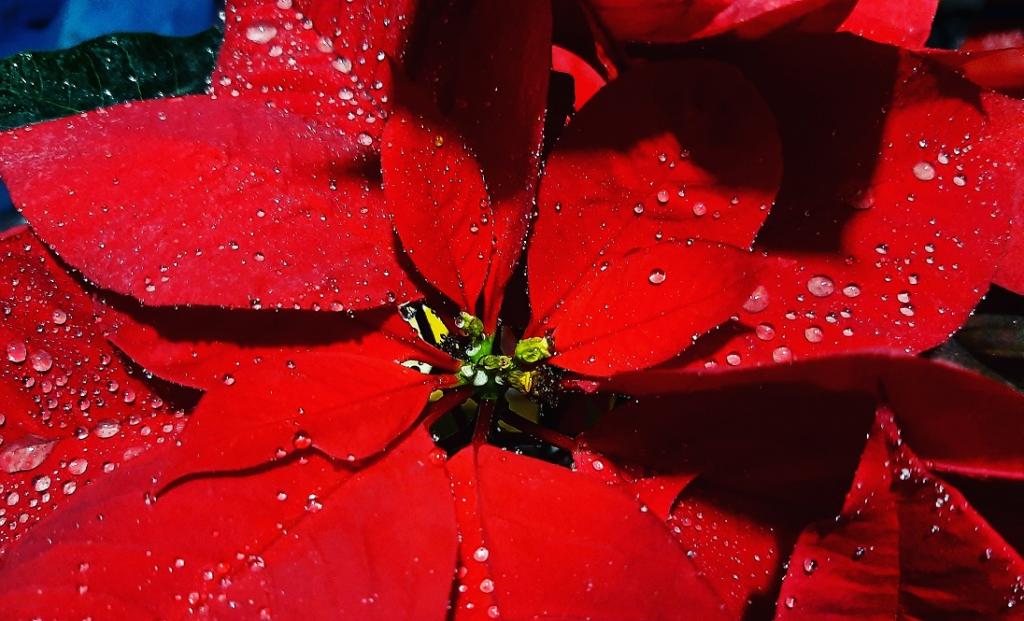Description

Copyright infringement is not intended
Context:
Poinsettia can be an example of intellectual property rights or biopiracy; it depends on whose interests one wants to nourish and protect: the breeder’s or the cultivator’
Details:
- Poinsettia has been associated with Christmas since the 16th century
- The shrub, known for its showy red bracts or modified leaves, is native to Mexico and was used by the Aztecs for dyeing their garments and as an anti-pyretic medicine.
- How the cuetlaxochitl, meaning “flower that grows in residues” in the Aztec language, became the Christmas Eve flower of modern times as well as a top-selling potted plant is a story replete with patents, a market monopoly and a leaked trade secret that finally undermined one American family’s control of the business in the 1990s after a nearly 100-year run.
- Brought to the US by the country’s first ambassador to Mexico, Joel Poinsett, a botanist, the poinsettia was named after him.
- Poinsettia is a case study of what breeding skills combined with business acumen can achieve in a setting of intellectual property rights (IPRS).
- Or is it, rather, a case of biopiracy where the people and the region that nurtured the plant for centuries and inspired its link with Christmas did not share the benefits of its commercialisation?
- It all depends on the perspective one takes and whose interests one wants to nourish and protect: the breeder’s or the cultivator’s.
- Apart from patent systems in individual countries, there have been systematic initiatives at the behest of plant breeders to create strong protection for their varieties — at the cost of farmers.
- The most significant of these is the International Union for the Protection of New Varieties of Plants or UPOV, a treaty created outside the UN to provide a regulatory system for protecting plants.
- Members joining UPOV have to enact a compatible national law. Since it was first passed in 1961 at the prodding of European breeding companies, the treaty has been revised thrice, the last being in 1991, when the most stringent regulations were added.
- So far, just 76 members have signed and many of these did so because of pressure when signing bilateral trade agreements with the EU, US, Japan and the European Free Trade Association.
.jpg)
Indian Scenario:
- Like many other countries, India has refused to join UPOV since it denies farmers any rights, such as the freedom to reuse farm-saved seeds and to exchange them with their neighbours, which is a tradition in this country of poor farmers.
- With the World Trade Organization’s all-encompassing IPR agreement on Trade-Related Aspects of Intellectual Property Rights (TRIPS) coming into force, India had the choice of either joining UPOV or to formulate a sui generissystem that granted protection to breeders’ rights while keeping farmers’ interests uppermost.
- The result was the Protection of Plant Varieties and Farmers Rights Act of 2001 (PPV&FRA), which balances the interests of both while encouraging innovation in new varieties.
- This, however, has not been to the liking of developed countries, and India has faced pressure constantly to join UPOV.
- The standoff with PepsiCo, which attempted to enforce its IPR on two of its registered potato varieties that are used to make its branded wafers, has not helped India’s case that it was compliant with global norms on protecting breeders’ rights.
- In 2018, multinational PepsiCo began intimidating potato growers in Gujarat for violating its IPR, claiming that the farmers were using its variety illegally.
- It filed IPR infringement cases against a clutch of cultivators, the first such cases to be filed in India.
- Following massive protests by farmers and a strong campaign by farming activists, the authority overseeing the implementation of PPV&FRA was last year forced to revoke PepsiCo’s registrations, which had another six years to go.
- This has opened India to further pressure, the latest from the EU, which is negotiating an ambitious Free Trade Agreement (FTA) with India.
- One of its demands, according to farmers’ lobbies up in arms against the FTA, is the demand that India join UPOV.
- A sustained mobilisation against the trade deal, the details of which are not public, is underway and there is no prospect of peace and goodwill on this contentious point.

https://www.downtoearth.org.in/blog/wildlife-biodiversity/cuetlaxochitl-the-story-of-america-s-christmas-eve-shrub-has-lessons-for-free-trade-patents-86757













